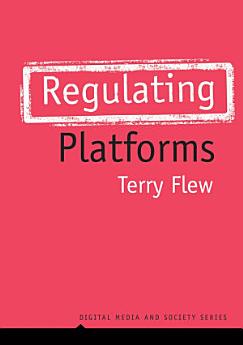Regulating Platforms
พ.ย. 2021 · John Wiley & Sons
5.0star
1 รีวิวreport
eBook
256
หน้า
reportคะแนนและรีวิวไม่ได้รับการตรวจสอบยืนยัน ดูข้อมูลเพิ่มเติม
เกี่ยวกับ eBook เล่มนี้
We once thought of cyberspace as a borderless world. As the internet has become increasingly platformized, with a small number of technology giants that dominate the global digital economy, concerns about information monopolies, hateful online content, and the impact on media content creators and creative industries have become more marked. Consequently governments, politicians, and civil society are questioning how digital platforms can or should be regulated.
In this up-to-the-minute study, Terry Flew engages with important questions surrounding platform regulation. Starting from the premise that governance is an inherent feature of digital platforms, he argues that the challenge is to develop the best frameworks for balancing external regulatory oversight with the internal governance practices of platform companies. The intersection of media policy, information policy, and economic policy is an important element of policy frameworks, as national authorities increasingly seek to engage with the power of global digital platforms.
Lively and accessible, Regulating Platforms is a go-to text for students and scholars of media and communication.
การให้คะแนนและรีวิว
5.0
1 รีวิว
เกี่ยวกับผู้แต่ง
Terry Flew is Professor of Digital Communication and Culture at the University of Sydney.
ให้คะแนน eBook นี้
แสดงความเห็นของคุณให้เรารับรู้
ข้อมูลในการอ่าน
สมาร์ทโฟนและแท็บเล็ต
ติดตั้งแอป Google Play Books สำหรับ Android และ iPad/iPhone แอปจะซิงค์โดยอัตโนมัติกับบัญชีของคุณ และช่วยให้คุณอ่านแบบออนไลน์หรือออฟไลน์ได้ทุกที่
แล็ปท็อปและคอมพิวเตอร์
คุณฟังหนังสือเสียงที่ซื้อจาก Google Play โดยใช้เว็บเบราว์เซอร์ในคอมพิวเตอร์ได้
eReader และอุปกรณ์อื่นๆ
หากต้องการอ่านบนอุปกรณ์ e-ink เช่น Kobo eReader คุณจะต้องดาวน์โหลดและโอนไฟล์ไปยังอุปกรณ์ของคุณ โปรดทำตามวิธีการอย่างละเอียดในศูนย์ช่วยเหลือเพื่อโอนไฟล์ไปยัง eReader ที่รองรับ






